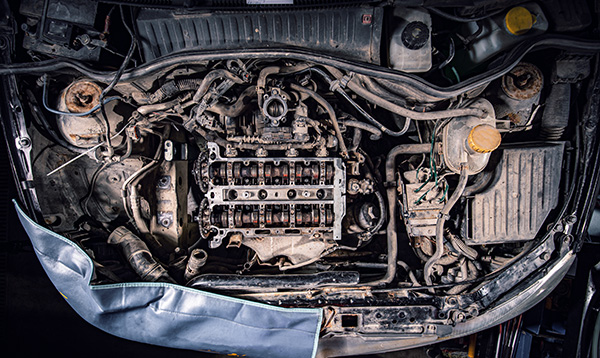
Diesel engines have long been known for their remarkable fuel efficiency, making them a preferred choice for heavy-duty vehicles and long-haul transportation. But what exactly gives diesel engines this edge over their gasoline counterparts? We'll explain the mechanics and science behind how diesel engines maximize fuel efficiency, offering both economic and environmental benefits.
The Basics of the Diesel Engines
At their core, diesel engines operate on the principle of compression ignition, unlike gasoline engines that rely on spark ignition. This fundamental difference is key to their fuel efficiency. Diesel engines compress air to a much higher degree than gasoline engines, resulting in significantly higher temperatures. When diesel fuel is injected into this hot, compressed air, it ignites spontaneously. This process is more efficient because it extracts more energy from the fuel.
Higher Compression Ratios
One of the primary reasons diesel engines are more fuel-efficient is their higher compression ratios. A typical diesel engine has a compression ratio of 14:1 to 25:1, compared to 8:1 to 12:1 in gasoline engines. This higher compression ratio means that diesel engines can extract more mechanical energy from the same amount of fuel, leading to better fuel economy. The increased efficiency also translates into more torque, making diesel engines ideal for towing and heavy loads.
Direct Fuel Injection
Diesel engines use direct fuel injection, where fuel is injected directly into the combustion chamber. This method allows for more precise control over the fuel-air mixture, optimizing combustion and reducing wasted fuel. Modern diesel engines employ advanced common rail fuel injection systems, which operate at extremely high pressures and allow for multiple injections per combustion cycle. This precise control improves fuel atomization and mixing, resulting in more complete combustion and higher efficiency.
Lean Burn Operation
Diesel engines typically run on a lean burn cycle, meaning they operate with a higher air-to-fuel ratio than gasoline engines. A leaner mixture results in less fuel being used for the same amount of air, which enhances fuel efficiency. Additionally, the lean burn operation reduces the production of carbon monoxide and unburned hydrocarbons, contributing to lower emissions and a cleaner burn.
Turbocharging and Intercooling
Many diesel engines are equipped with turbochargers, which increase the amount of air entering the engine, allowing for more fuel to be burned and more power to be generated without increasing engine size. This process, combined with intercooling (cooling the air after the turbocharger has compressed it), improves the density of the air-fuel mixture, leading to more efficient combustion. Turbocharging and intercooling collectively enhance engine performance and fuel efficiency, especially at higher loads and speeds.
Advanced Engine Management Systems
Modern diesel engines are equipped with sophisticated engine management systems that continuously monitor and adjust various parameters to optimize performance and efficiency. These systems control fuel injection timing, quantity, and pressure, as well as turbocharger boost and exhaust gas recirculation. By fine-tuning these factors in real time, the engine management system ensures that the engine operates at peak efficiency under all conditions.
Reduced Internal Friction
Diesel engines are built with robust components to handle the high compression ratios, which also means they experience less internal friction. Lower internal friction reduces energy losses, allowing more of the fuel's energy to be converted into useful work. This contributes to the overall efficiency and longevity of the engine.
The Role of Diesel Fuel
Diesel fuel itself plays a significant role in enhancing engine efficiency. Diesel fuel has a higher energy density than gasoline, meaning it contains more energy per gallon. This higher energy content allows diesel engines to achieve better mileage. Additionally, diesel fuel's lower volatility reduces the risk of pre-ignition and knocking, enabling engines to run more efficiently and with greater stability.
Is your diesel engine not performing at its best? Schedule a diagnostic check with Villa Marina Auto Care today and let our experts optimize your engine's fuel efficiency.